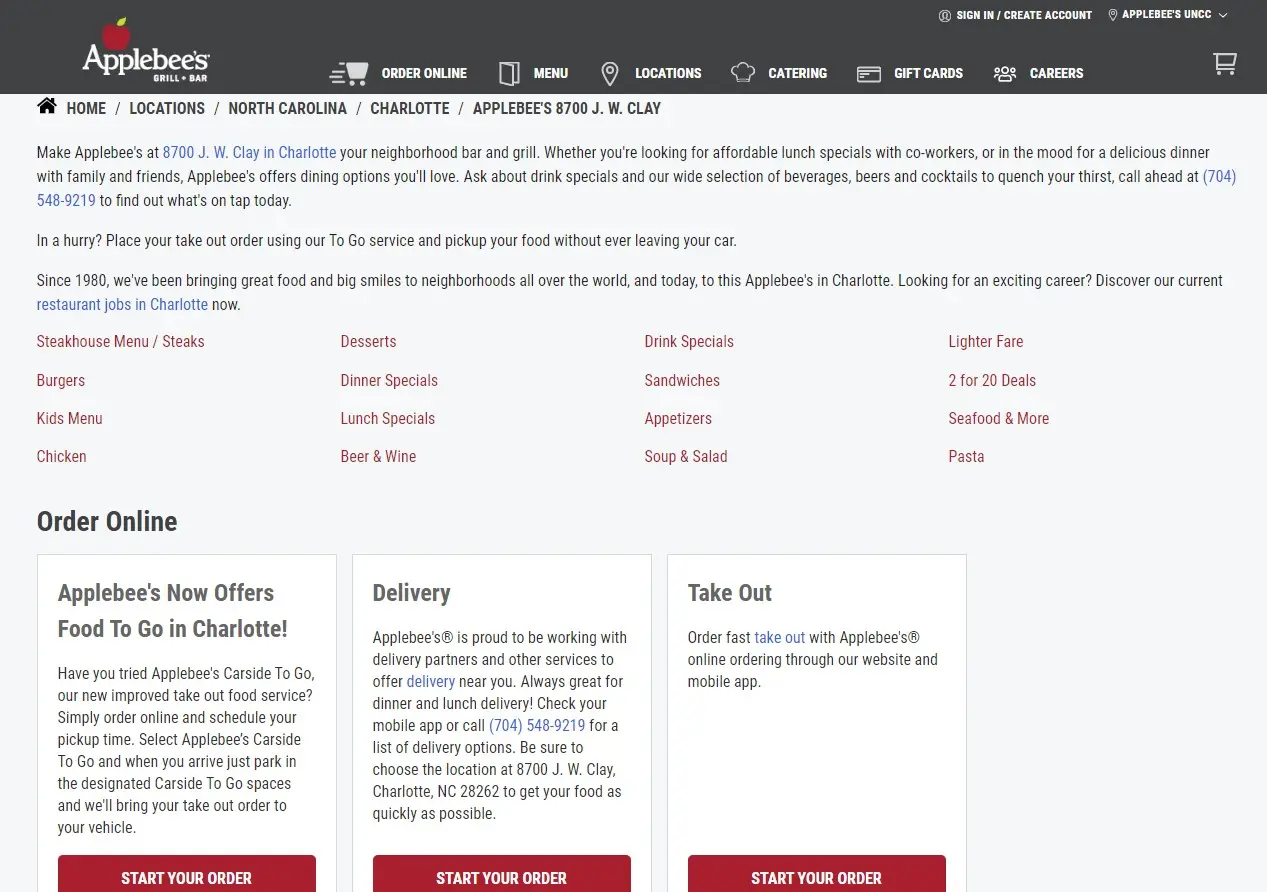How to support your Local Search rankings with organic SEO

Even with the most exceptional offline customer experience, local businesses face the persistent challenge of attracting the attention of potential consumers.
Local SEO has proven to be a game-changer for multi-location brands, enabling businesses to enhance online visibility, improve local experiences, drive foot traffic, and ultimately boost revenue. By layering organic search optimizations over your local strategy, businesses can unlock a potent synergy that not only helps them rank higher in local search results but also enhances their overall online visibility and brand authority.
In this article, we’ll explore the invaluable relationship between local and organic SEO, uncovering valuable insights and practical techniques to help you maximize your local SEO endeavors by leveraging the power of organic optimization.
What’s the difference between organic and local SEO?
Organic SEO encompasses broad strategies to improve your website’s visibility on search engine results pages (SERPs) in organic search for relevant queries, regardless of location.
On the other hand, local SEO focuses on optimizing your online presence for each location to capture the attention of potential customers in the immediate vicinity. This entails optimizing business listings, generating positive reviews, and leveraging location-based keywords, to start.
When Google perceives local intent in a searcher’s query, the search engine returns a Map Pack of top business options for that searcher. And we know that Google places a strong emphasis on the proximity of the searcher when delivering results. Local rankings also impact your brand’s visibility on Google Maps, third-party websites, and applications via APIs. Considering that 74% of local consumers recently said they frequently use Google Search/Maps to find information about businesses in their area, all your locations must appear prominently in these results.
Does organic SEO have an impact on local rankings?
In a word: yes. But of course, the answer is much more nuanced, so let’s dig in.
Google is clear about what matters most when it comes to local rankings. In its help resource ‘How to improve your local ranking on Google’ the search engine Google states, “To improve your business’s local ranking, use Google Business Profile to claim and update your business information.”
However, it also notes that Business Profiles are not the only place Google sources the information it uses for local search results.
The information in each location’s Google listing is also informed by:
- Publicly-available information including information from a business’ official website
- Licensed data from third parties
- Users who contribute key business information such as addresses and phone numbers, photos, and reviews
- Information based on Google’s interactions with a local place or business
All of this information Google gathers helps its local algorithms surface relevant local search results for searchers looking for products, services, and solutions nearby. Given how tightly intertwined the two disciplines are, a smart local strategy considers and optimizes for the customer experience in both local and organic search results.
Here are a few tips to help you use organic SEO more effectively to support your local search rankings:
1. Prioritize on-page SEO
On-page SEO has the power to boost rankings, when done correctly. Here are a few tips to get the most out of your on-page SEO efforts.
- Optimize site and local landing page content for your target local keywords. Update headings, subheadings, and copy, and don’t forget to add descriptive alt text for images, as well.
- Include locally relevant copy throughout the page – such as information specific to that location in terms of staff at that store, businesses close by, cross streets, store-specific promotions, and more.
- Use schema markup to help Google better understand each page’s relevance to local queries and to increase the likelihood of triggering rich and featured snippets.
- Update title and meta tags to include target keywords for each location.
- Establish a content workflow that enables local stakeholders to participate in the creation and publication of the descriptive locally relevant content that consumers crave while protecting brand reputation with permissions and editorial controls.

2. Consider the customer’s journey in your web design
Are you inadvertently creating obstacles in your local customers’ path to purchase? Consider how your website fits in the customer’s journey from search.
While some find everything they need to decide on a local listing in search, others want more information before visiting a store or office in person. Driving qualified traffic from local listings to local pages ensures you can deliver more in-depth, compelling information customers seekc. They may be looking for:
- Longer and more detailed business information
- Photos to help them understand the experience you’re offering
- Content in their local language
- Product and service menus and availability
- Upcoming events and promotions at their local store
Optimize your local pages to deliver on these needs and help searchers move fluidly from discovery to an in-store visit.
3. Support best practice technical SEO in your organization
Technical SEO continues to be one of the most impactful ways to support a healthy search presence. Organic SEO emphasizes optimizing your website’s user experience, indirectly benefiting local SEO efforts. By enhancing site speed, ensuring mobile responsiveness, and optimizing navigation, you provide a seamless and enjoyable experience for users visiting your website.
This positive user experience encourages visitors to spend more time on your site, reducing bounce rates and increasing the likelihood of local conversions. It’s an ecosystem that not only supports your local SEO efforts but also future-proofs your business against algorithmic changes or fluctuations in local search trends. Audit your site regularly and make sure there are no technical issues preventing search engines from understanding and trusting your site’s content.
Local citations play a crucial role in local SEO, as well, and are also an important factor in your customer’s early experiences with the brand. Improve your local citations by ensuring consistent and accurate information across various online platforms. Optimizing your business name, address, phone number (NAP), and other relevant details strengthens your local online presence, boosts your credibility, and increases your chances of appearing in local search results.
4. Create new, optimized local content regularly
A strong organic SEO strategy focuses on creating high-quality and informative content that resonates with your target audience. By consistently delivering valuable content, you establish your brand as an authoritative source in your industry. This authority not only enhances your online reputation but also reinforces your credibility at the local level, attracting nearby customers who perceive you as a trusted and knowledgeable entity.
To create relevant content that will attract and engage motivated customers:
- Tap into your local knowledge base and subject matter experts.
- Use high-quality images and videos in blog posts, local pages, Google Posts, Google Business Profiles (and other online listings), and social media.
- Focus on incorporating local context by mentioning landmarks that help consumers picture the location, working in local trends and lingo, showcasing local accolades and community service, and more.
- Incorporate long-tail keywords that speak to the diverse needs of your audience in different geographic regions.
Lean on your local search insights to drive smart, data-backed decisions about new content opportunities.

5. Nurture a holistic mindset in your digital marketing team
While local SEO focuses on immediate visibility in local search results, organic SEO establishes a solid foundation for sustained online success. By investing in organic SEO practices like building backlinks, cultivating a social media presence, and earning online reviews, you create a sustainable online presence across all your brand’s locations.
Nurturing a holistic approach to digital marketing within an enterprise team requires a combination of strategic planning, effective communication, continuous learning, and collaborative efforts. Establish clear goals and objectives for your digital marketing team, and ensure each member understands others’ roles and the significance of their focus areas. Marketers of varying disciplines shouldn’t feel the need to compete against one another for budget and support.
Organic and local SEO are just better together
Think of your local and organic SEO efforts as complementary and find ways to support both initiatives whenever possible. For example, you could repurpose images in your blog posts by creating a new Google Post for each. Or have your local pages dynamically include recent local reviews content so the resources you allocate to review management benefit you in multiple interactions with prospective customers.
These are a few examples of how organic optimization supports your local ranking efforts. Get in touch with the Rio SEO team to discuss other creative ways to advance your business’ organic and local SEO strategy.




